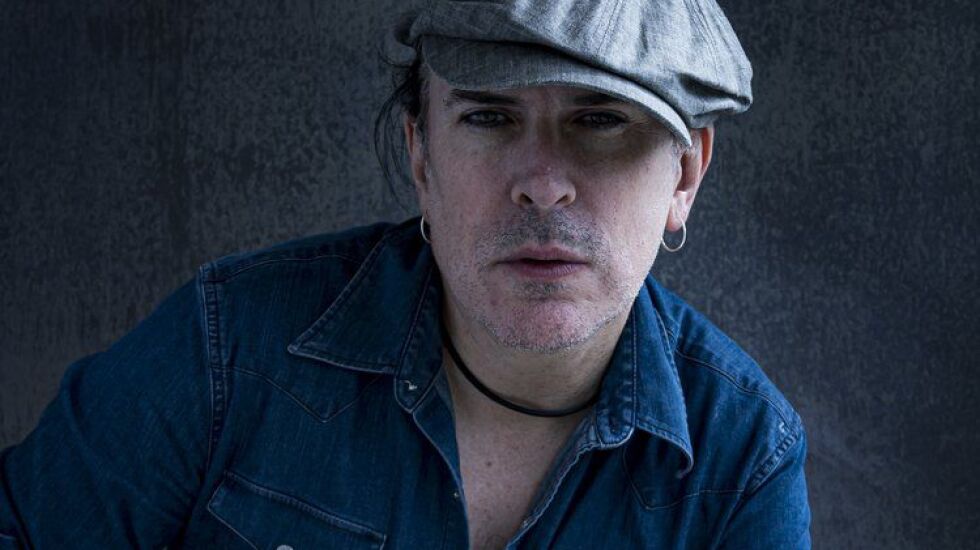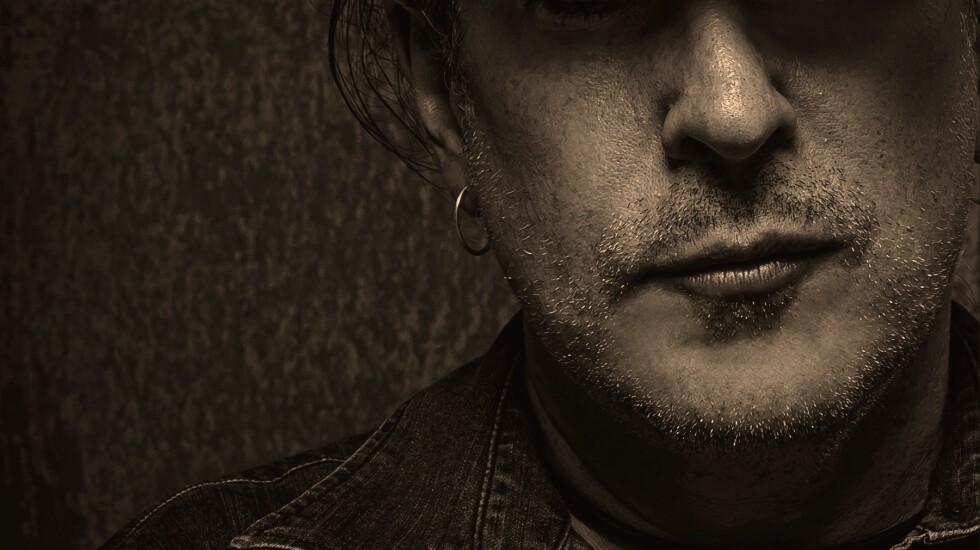
Chicago singer-songwriter Michael McDermott spent the past two years pulling together all the pieces of his life. Some memories were as vivid as sunlight; some were as foggy as London on a rainy day. All were scars.
Not the visible kind, but those invisible wounds that cut you deep down inside and can take a lifetime to heal — or maybe never.
In his new memoir, “Scars From Another Life,” McDermott writes about his near-fatal life journey through alcohol and cocaine addiction, self-destruction, guns, financial ruin and the music that became his salvation.
McDermott released his first album “620 W. Surf” in 1991. What followed was a meteoric taste of fame via MTV, charting hits, international acclaim. It came crashing down just as fast.
McDermott recently chatted about the book and the music (his latest release, “St. Paul’s Boulevard,” recorded at Chicago’s Transient Sound, arrived earlier this year on Pauper Sky Records). He will also receive the 2022 Tenco Songwriting Award later this year in Sanremo, Italy, a country that has become his second home of sorts and where he enjoys a huge and loyal fan base. Previous winners have included Joni Mitchell and Tom Waits, coincidentally both heroes of his, he says.
Married to a fellow Chicagoan, singer-songwriter Heather Horton, and proud father to a daughter (now 12 years old), McDermott is nine years sober and the scars seem a lifetime away.
Q. How long did it take you to write the book?
A. It kind of started in the pandemic. I didn’t know how long we were going to be cooped up. People and friends were always telling me, man you should write a book. … So I just started writing.

Q. What was the process like, pulling together so many memories and experiences? How did it affect you emotionally?
A. It was brutal. Heather would come in and say, what’s the matter with you? Writing this book is going to kill you. I just wanted to get through it.
It made me nauseous. I would write and think about how gross it all was. The decisions I made.
I recommend anyone to write a [memoir] because when you see it it’s all real, it’s not just in your head, you see the terribly fraught judgment we all have. These consistently bad decisions I made. It’s a blueprint of what not to do. ... It’s hard to write about something you’re cloaked in. I just felt that now I could write about those people and those experiences better than I could when I was actually steeped in them. Because there’s a distance and a perspective. I mean every song was about drinking. Every song was about drugs. Every song was about sex. It all became so tiresome. Until you become tired of being tired.
Sex, drugs and rock ’n’ roll are totally overrated [Laughs].
Q. Looking back at the Michael of 20 years ago, do you recognize that guy?
A. No. Even the title of the book says it’s a different life. It was a different person. I had to fact check [content] and I was like, dude did that happen? It was almost inconceivable that I made those choices. It shows the pathology of the sickness [of alcoholism and drug abuse], … Some of that life was funny, too. It wasn’t all [bad]. It was a child out in the wild. Even my childhood with my dad and my family. Looking back at that little boy, what does it say now?
Q. Through it all, your narrative clearly shows how music was your salvation on many levels, though it, too, started to suffer as your life spiraled.
A. At the end of the day, music was the life preserver. But I abused it, what I once held sacred. During that time in my life I couldn’t wait for the show to be over. It was about getting through [a show] and getting to what mattered more — the partying, the alcohol, the drugs, the sex.
Now being on stage is the most beautiful time of my entire day and I don’t want it to end. Not that I do a six-hour Springsteen show [laughs]. I’m just a totally different person up there now filled with gratitude that I’m still able to do what I love so much. And I almost pissed all of it away. … But I never wrote a song when I was f——d up. I always worked sober. I guess I felt there was a sacredness to that. I had the presence of mind not to abandon that.
Q. Have you finally found joy in music again?
A. That’s what I have now. I find pleasure in the process of working. I get up in the morning, meditate, get my lunchpail and go to my studio and stare at a blank computer screen and say, OK, what can I create today?
My pleasure is peace. Just peace. The end of the book is me coming to that realization.
Q. What surprised you the most when you were rediscovering the old Michael?
A. The resiliency. My therapist [helped me see that]. Because I had lost any sense of my authentic self. Imposter syndrome was in full bloom. Just that feeling of fraud. A lot of it came from early on in my life. I liked to blame a lot of the downfall on the music business and too much success too soon, but a lot of it was latent, just always there.
Q. Are you true to yourself now?
A. Completely. I can see it now. Everybody should write their autobiography. Start digging. It gets uncomfortable, but it lets you get way down inside there and break through. It’s exhausting, and probably the most grueling therapy you could have.







